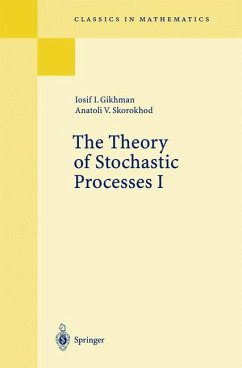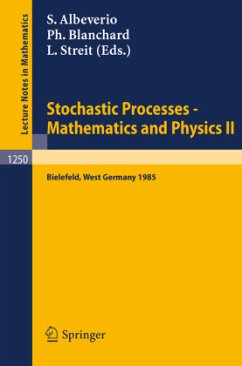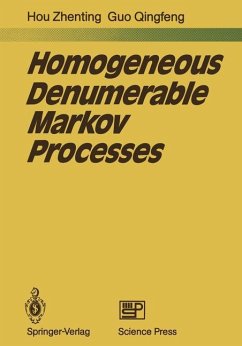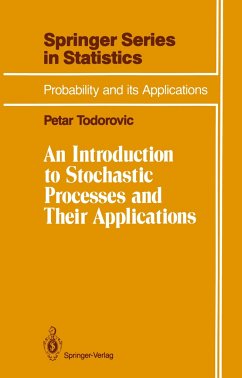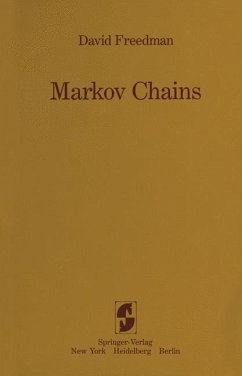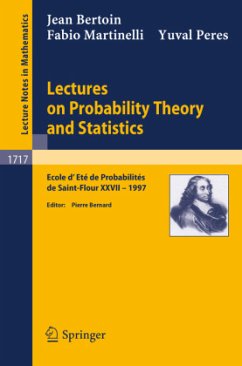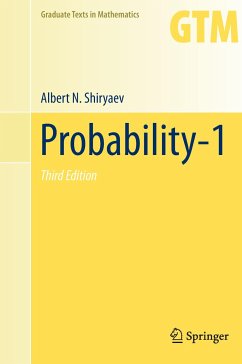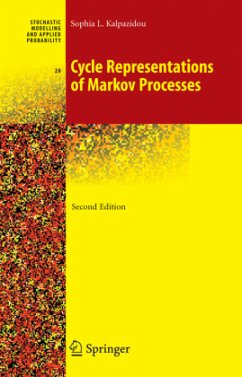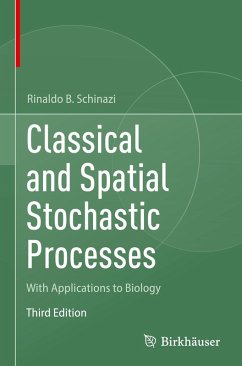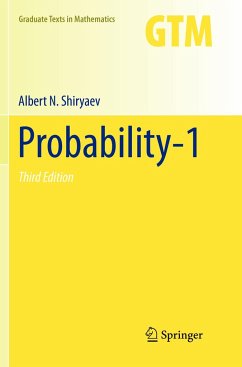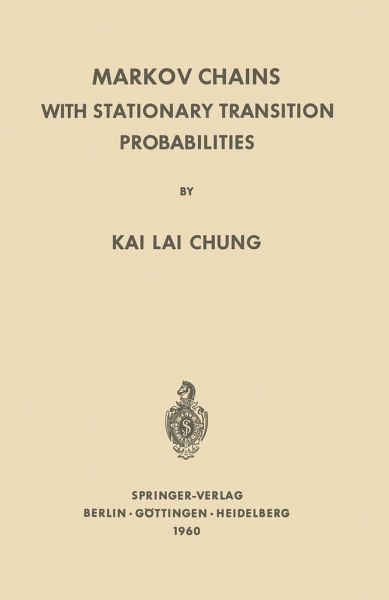
Markov Chains with Stationary Transition Probabilities

PAYBACK Punkte
20 °P sammeln!
The theory of Markov chains, although a special case of Markov processes, is here developed for its own sake and presented on its own merits. In general, the hypothesis of a denumerable state space, which is the defining hypothesis of what we call a "chain" here, generates more clear-cut questions and demands more precise and definitive an swers. For example, the principal limit theorem (1. 6, II. 10), still the object of research for general Markov processes, is here in its neat final form; and the strong Markov property (11. 9) is here always applicable. While probability theory has advanced...
The theory of Markov chains, although a special case of Markov processes, is here developed for its own sake and presented on its own merits. In general, the hypothesis of a denumerable state space, which is the defining hypothesis of what we call a "chain" here, generates more clear-cut questions and demands more precise and definitive an swers. For example, the principal limit theorem (
1. 6, II. 10), still the object of research for general Markov processes, is here in its neat final form; and the strong Markov property (
11. 9) is here always applicable. While probability theory has advanced far enough that a degree of sophistication is needed even in the limited context of this book, it is still possible here to keep the proportion of definitions to theorems relatively low. . From the standpoint of the general theory of stochastic processes, a continuous parameter Markov chain appears to be the first essentially discontinuous process that has been studied in some detail. It is common that the sample functions of such a chain have discontinuities worse than jumps, and these baser discontinuities play a central role in the theory, of which the mystery remains to be completely unraveled. In this connection the basic concepts of separability and measurability, which are usually applied only at an early stage of the discussion to establish a certain smoothness of the sample functions, are here applied constantly as indispensable tools.
1. 6, II. 10), still the object of research for general Markov processes, is here in its neat final form; and the strong Markov property (
11. 9) is here always applicable. While probability theory has advanced far enough that a degree of sophistication is needed even in the limited context of this book, it is still possible here to keep the proportion of definitions to theorems relatively low. . From the standpoint of the general theory of stochastic processes, a continuous parameter Markov chain appears to be the first essentially discontinuous process that has been studied in some detail. It is common that the sample functions of such a chain have discontinuities worse than jumps, and these baser discontinuities play a central role in the theory, of which the mystery remains to be completely unraveled. In this connection the basic concepts of separability and measurability, which are usually applied only at an early stage of the discussion to establish a certain smoothness of the sample functions, are here applied constantly as indispensable tools.





